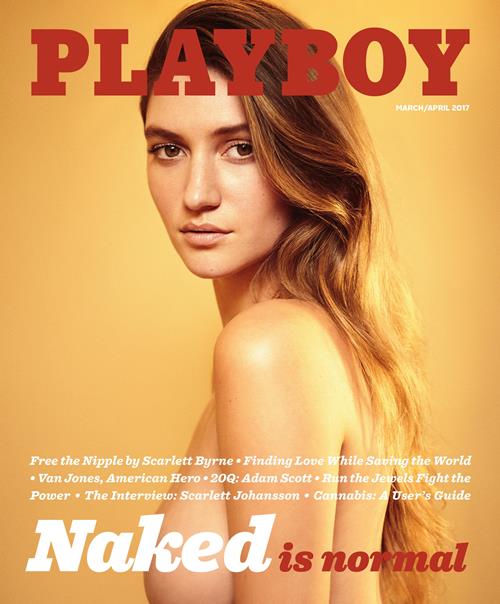Playboy grins and bares it
- 17 Mar 2017
- The iconic magazine has retired its "Entertainment for Men" tagline, but the content is no longer SFW. Reversing the decision to go non-nude won't solve its problems, though.

It’s been a month since the announcement that Playboy would go nude again. I bought the March/April 2017 issue as soon as I read the news, on Valentine’s Day no less. I have the digital edition, even though I’m old-school, and it’s the first issue that I’ve ever owned. The cover is reminiscent of the 1960s and early 1970s. I know the style of this era because I’ve played Mafia III and collected all 50 sets of select covers, photos, and interviews in the game.
The current issue has an introduction that’s written by Cooper Hefner, the CCO of Playboy and the youngest son of its famous creator. This manifesto is both admirable and questionable. On one hand, I respect that he is, in effect, at the helm of his family’s iconic brand. I appreciate his understanding of history, and I agree with his view of freedom. On the other hand, I think that his call-to-arms to the “intellectual battlefield” is overly dramatic.
Playboy was culturally relevant in the 60s and 70s because there were profound gender, racial, and socioeconomic injustices in America. The magazine’s liberal ideals about sex, and politics in general, connected with a lot of people, as shown by circulation numbers that peaked in 1975. However, the beginning of the decline began in 1969 when ARPANET became operational and paved the way for the network that became known as the Internet.
This decline accelerated in 1989, which coincidentally was the year that Cooper and his brother Marston’s mother, Kimberly Conrad, was Playmate of the Year. On 12 March of that year, Tim Berners-Lee invented the World Wide Web. Playboy has suffered in the new millennium mainly because titillation is freely available on the Web and partly because its mission, whether anybody recognizes it or not, is to affect how people think and act.
Playboy and other lifestyle magazines like GQ and Rolling Stone have built their identities as purveyors of (self-proclaimed) sexiness, stylishness, and coolness, but the Web has endless other options. In this day and age, projecting yourself as a figure of intellectual, moral, or social authority is setting yourself up for disappointment or embarrassment because people have access to countless other options.
The 2016 presidential election has, quite frankly, made metropolis-based, celebrity-focused, and politically outspoken, multimillion-dollar (and multibillion-dollar) media outlets look foolish. Playboy will endure, but its glory days are long gone. If it had more political balance, more unassuming interviewees, and more serious content about its core topics, I might actually be a regular consumer. I think that other Millennials have the same view.
Instead of empty idealizations and social trends, the brand should strive to deliver sophisticated insight with understated nudity as a nice bonus.